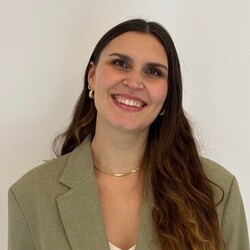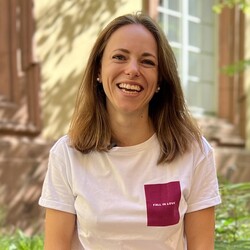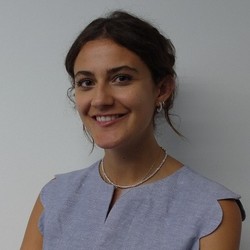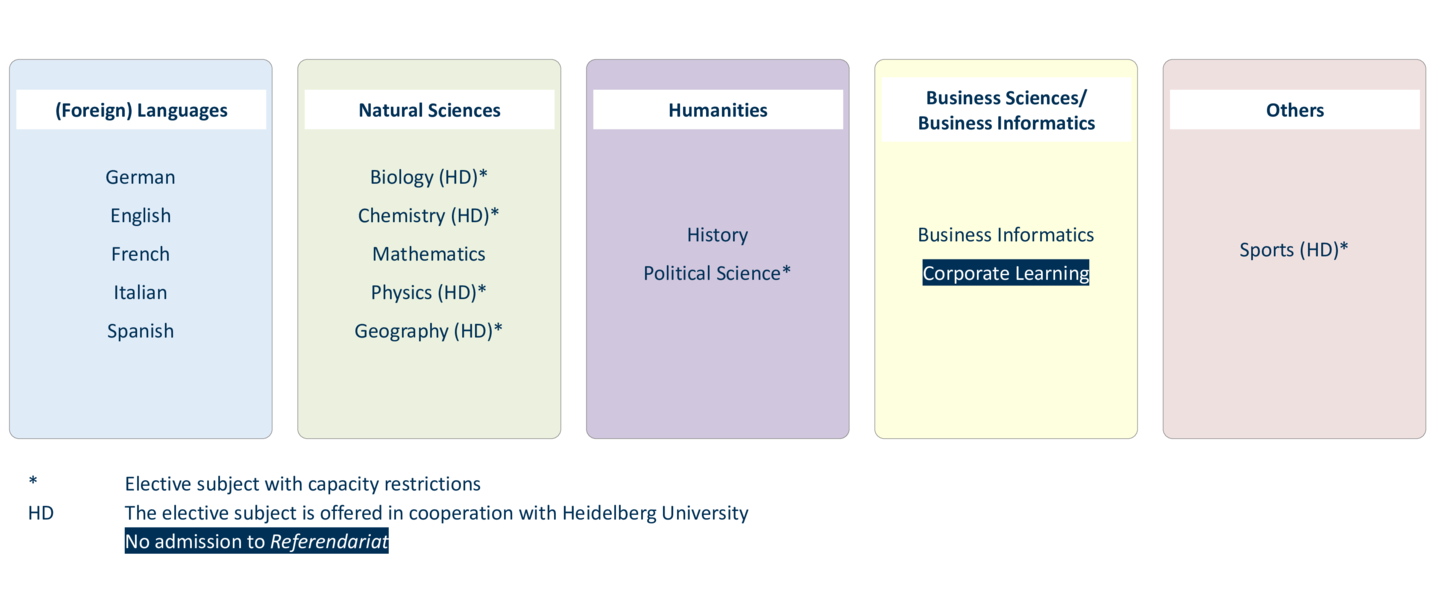Master's Program in Economic and Business Education
Program facts and information
Degree: Master of Science (M.Sc.)
Standard period of study: 4 semesters (2 years)
ECTS credits: at least 120
Language of instruction: German and English
Language requirements: German (click here for further information)
A good level of proficiency in English is recommended; no proof of language proficiency is required.Program start: Fall semester (September)
Academic calendarSchool: Business School
Semester fee: EUR 194 (more information)
Tuition fees for international students from non-EU countries: EUR 1,500
Tuition fees for a second degree: no additional fees (exception: students with Corporate Learning as an elective subject)Read more about the master’s program in Economic and Business Education (only available in German)
Program overview
In the master's program in Economic and Business Education, students develop the skills acquired during the bachelor’s program. A clear emphasis is placed on instructional (teaching-related) concepts, which are intended to equip students with subject-specific knowledge of the field. The goal is for master’s students to understand the relationship between empirical instructional research, instructional theories, and the tasks that come with teaching in a practical setting. At the same time, they enhance their skills in analyzing and designing business-educational learning environments.
The program not only includes modules in Economic and Business Education, but also in Business Administration and Economics and in Business Informatics. The broad range of courses offered in the Mannheim Master in Management program is open to you. The program offers a wide range of options: You have the opportunity to tailor the curriculum to your personal interests and focus on a certain area, for example, human resources, management, marketing, controlling, taxation, (international) finance, business informatics (digitalization), or logistics.
In addition, students acquire in-depth knowledge in their elective subject.
Apart from attending university courses, practical phases at schools are an integral part of the program for students with all elective subjects except Corporate Learning. Students with the elective subject Corporate Learning will spend a practical phase at a company.
With a master’s degree in Economic and Business Education, graduates are qualified to teach at vocational schools (after completing preparatory service, i.e. their Referendariat) or to work in other settings, e.g. in companies. The program is research-oriented, as well.
Why study Economic and Business Education at the University of Mannheim?
In Mannheim, you will be studying at one of the most renowned business schools in Europe. Whether CHE, FT Ranking or THE – independent rankings repeatedly confirm the outstanding quality of research and teaching in national and international comparison.
The Business School of the University of Mannheim has been accredited by three accreditation agencies, earning itself the internationally sought-after triple crown. The three most significant accreditation agencies, AACSB International (Tampa, USA), EQUIS/
EFMD (Brussels, Belgium), and AMBA (London, UK) have all confirmed the top quality of the study conditions in Mannheim. As one of the largest locations for Economic and Business Education in Germany, our professors make important contributions to research and thereby help to keep it always up-to-date. They share their findings with you in classes and individual coaching sessions. The Department of Economic and Business Education at the University of Mannheim is one of the largest departments in this field in Germany. This means that you can benefit from a broad range of research activities and state-of-the-art results, which are also reflected in our teaching.
A degree in Economic and Business Education opens up many different career paths in two directions: after completing a master's degree and their Referendariat, graduates can work as teachers at vocational schools or they can pursue a career in the private sector. To do this, you will acquire a sound knowledge of the fundamentals of Business Administration and Economics, Business Informatics and Public Economic Law. In addition, you will gain valuable practical experience during your studies – both in company and school internships that are an integral part of the program.
Furthermore, the elective subjects enable you to set specific individual priorities and help you to adapt your studies to your personal interests and professional goals.
Career opportunities
With a master’s degree in Economic and Business Education, graduates can work at a school. This is, however, not the only option open to them.
Upon subsequent completion of their Referendariat, graduates can move into the school sector and teach at any type of vocational school with a commercial focus in Germany (including Berufsschule, Berufsfachschule, Berufliches Gymnasium).
Thanks to their broad Economic and Business Education training, graduates work in all business areas of a company – similar to graduates of traditional business administration studies. They are particularly in demand in company training, continuing education and in continuing education management. In addition, they can be employed in numerous areas, including human resources management, controlling, management consulting, educational counseling and organizational development, marketing, finance and much more.
Students of Economic and Business Education later have excellent career prospects regardless of the path they decide to take: At vocational schools, teachers are always highly sought-after. Outside the school sector, their broad array of skills acquired during the program qualifies them for many different positions.
Please note that the school-based career path is possible with all elective subjects except Corporate Learning. Students with Corporate Learning as an elective subject will not be admitted to the Referendariat.
As the master's program is research-oriented, they can even opt for a career in academia and pursue a doctorate in fields such as Economic and Business Education, Business Administration, Educational Psychology/
Psychology of Education, or in a field related to their elective course. Required interests and skills
Students of Economic and Business Education should
- be interested in working on questions related to economics and teaching,
- be capable of critical thinking and working,
- be interested in teaching and learning in companies or schools,
- enjoy working with academic literature,
- have good knowledge of math and English.
Program structure
Degree plan
The degree plan (PDF, 277 kB) provides an overview of the planned courses in the different semesters.Studying abroad
The International Office and the Business School can advise you on planning a semester abroad. The ideal point in time to spend a period of study abroad is the third or fourth semester. However, going abroad is not mandatory and may extend your studies.Internships
Students of the master's program in Economic and Business Education with all elective subjects except for Corporate Learning complete two internships at a vocational school with a commercial focus in Baden-Württemberg. The internships last for four weeks respectively, and throughout their duration students are supported by the Institute for Didactics and Teacher Training (Vocational Schools) Karlsruhe. Usually, the internships take place between the first and second semester as well as between the third and fourth semester.Students of the master's program in Economic and Business Education with the elective subject Corporate Learning complete an eight-week internship in a company. The University of Mannheim supports the internship with a seminar, which usually takes place in the first semester. Students with the elective subject Corporate Learning prepare for a corporate career and cannot be admitted to the Referendariat for teaching at vocational schools.
Graduates who intend to continue with their Referendariat after completing the program are required to have gained at least 52 weeks of practical experience in different settings. One way of proving this is by completing a number of internships. Please go to the online platform for teachers in Baden-Württemberg, LOBW (PDF), for more information. Both mandatory internships completed during the bachelor’s program in Economic and Business Education and relevant voluntary internships are recognized. If you want to do any additional internships, you can do so during the semester break or take an academic leave of absence for a semester. For questions relating to planning an internship, please contact the academic advising team.
Continuing Education
Certificate programs
Strengthen your potential, deepen your knowledge, find solutions for challenges we will face tomorrow – there are many good reasons to think outside the box, get to know and try out new things even during your studies.At the University of Mannheim, you can do this in the “Studium Oecologicum” which focuses on sustainability. In our certificate program, you will acquire interdisciplinary expert knowledge which can help you to act ethically and to make holistic decisions.
Language courses
Making language learning easier: No matter if you want to learn Japanese, Hebrew, Spanish or Norwegian, take the Graduate Record Examination Test (GRE), The European Language Certificates (telc) or the TOEFL test – each semester, the University of Mannheim offers language courses and language certificates in more than 16 languages for students and non-university members, online and on campus!Studium Generale
Are you interested in IT or communication trainings or theater, music, or drawing courses? Studium Generale has a vast range of courses available to all.Doctorates
Graduates of the master’s program in Economic and Business Education who would like to pursue a doctoral degree have two options:
- They can either start their doctoral studies at one of the following chairs: Economic and Business Education, Business Administration, Educational Psychology/
Psychology of Education, or a chair related to their elective course. Please contact the respective chair directly to ask about vacancies for academic staff members. It is also possible to pursue a doctorate at a chair as an external doctoral candidate, that is without being employed by the chair. - Or they can join a doctoral program at the Center for Doctoral Studies in Business (CDSB) at the Graduate School of Economic and Social Sciences (GESS) in Accounting, Finance, Information Systems, Management, Marketing, Operations Management, and Taxation.
General information on doctoral studies at the University of Mannheim
- They can either start their doctoral studies at one of the following chairs: Economic and Business Education, Business Administration, Educational Psychology/
Admission requirements and selection
In our selection process, we take numerous criteria into account. For more details, please check the selection statutes (see below). Be bold! Please do not hesitate to contact us if you need advice. We are looking forward to receiving your application!
Admission requirements
If you have not yet completed your bachelor’s degree, you may still apply for a master’s program as long as will provide a proof that you have obtained at least 135 ECTS credits.
- Completion of a bachelor’s program in Economic and Business Education or an equivalent program in Economics or Business Administration at a German higher education institution or abroad corresponding to at least 180 ECTS credits or a standard period of study of at least three years.
- A program of study is recognized as equivalent if competencies corresponding to at least 120 ECTS credits are acquired that correspond to the competencies acquired in the bachelor's program in Economic and Business Education at the University of Mannheim.
- If subject-specific knowhow corresponding to no more than 60 ECTS credits is missing, you can still apply, since you can acquire this knowhow later on.
- A program of study is recognized as equivalent if competencies corresponding to at least 120 ECTS credits are acquired that correspond to the competencies acquired in the bachelor's program in Economic and Business Education at the University of Mannheim.
- Proof of proficiency in German
Selection criteria
The final grade or – for students still completing their degree – the grade average of the bachelor’s program.Selection statutes
Under “Admission requirements and selection” we have compiled the most important selection criteria of the program for you. For more detailed explanations of the selection process and the legally binding requirements of the degree program, please refer to the selection statutes.- Completion of a bachelor’s program in Economic and Business Education or an equivalent program in Economics or Business Administration at a German higher education institution or abroad corresponding to at least 180 ECTS credits or a standard period of study of at least three years.
Application
Scholarships and funding
The university offers various funding opportunities. Around 200 Mannheim students receive scholarships every year, which are intended to give them the freedom to focus on their academic achievements or to continue their voluntary work alongside their studies. Find out more about the funding opportunities and feel free to apply, for example, for the Deutschland Scholarship, the Opportunity Mannheim Scholarship or the Elite Sports Scholarship Rhine-Neckar Metropolitan Region.Funding opportunities for international degree-seeking students
Application deadline
The application deadline for fall semesters starts on 1 April and ends on 15 May.It is not possible to apply for the spring semester.
Contact

Clara Vonhof, M.Sc.
L 4, 1 – Room 001 (ground floor)
68161 Mannheim
Please note: Only online consultations are offered currently. Please make an appointment at https://www.bwl.uni-mannheim.de/online-beratung/studiengangsmanagementwipaed/
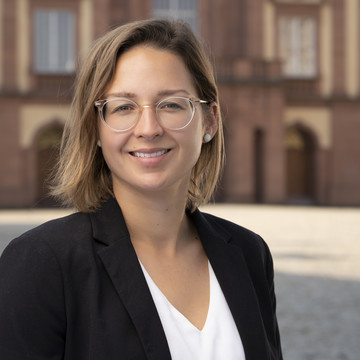
Isabella Heppting, M.A.
Office of the Examination Committees Business Administration and Business Education
L9, 7 – Room 302 (3rd floor)
68161 Mannheim
Please make an online appointment via https://www.bwl.uni-mannheim.de/online-beratung/isabella-heppting/
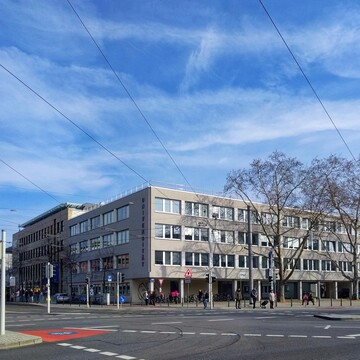
Admissions Office
L 1, 1 – Room 157, 158
68161 Mannheim

